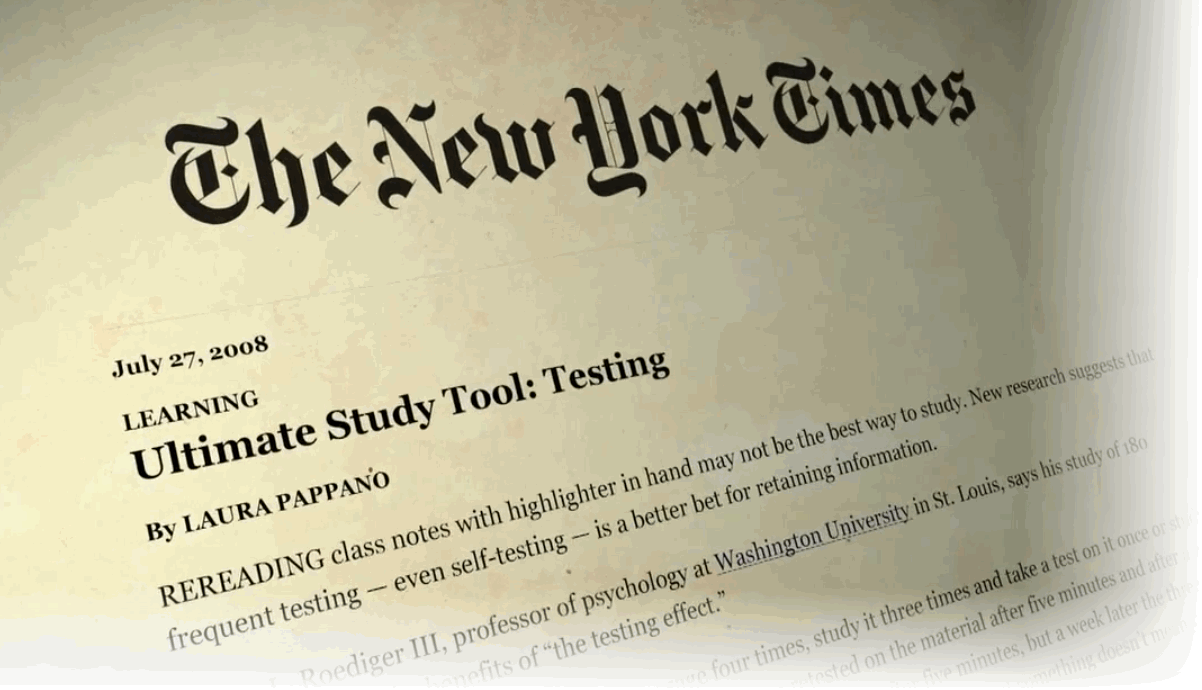
16-Sep-2015 | 8:46 PM

REREADING class notes with highlighter in hand may not be the best way to study. New research suggests that frequent testing — even self-testing — is a better bet for retaining information.
Henry L. Roediger III, professor of psychology at Washington University in St. Louis, says his study of 180 students shows the benefits of “the testing effect.”
Students were asked either to study a passage four times, study it three times and take a test on it once or study it once and take a test on it three times. They were then retested on the material after five minutes and after a week. Those who only studied — O.K., crammed — did slightly better after five minutes, but a week later the three-time test takers outscored the other groups significantly. “Just repeatedly looking at something doesn’t mean you own it,” Dr. Roediger says. “The act of retrieval is a very active memory enhancer.”
In addition, says Dr. Roediger, frequent testing has the practical effect of breaking material into chunks, which helps students keep up in courses that cover lots of ground.
His study will be included in “Psychology and the Real World: Essays Illustrating Fundamental Contributions to Society” (Worth Publishers); a related study, by Dr. Roediger and Jeffrey D. Karpicke, was recently published in the journal Science.
Do the findings suggest that standardized testing improves student performance?
Dr. Roediger says he doesn’t take a position on policy debates. But then he adds: “The bottom line is yes.”




